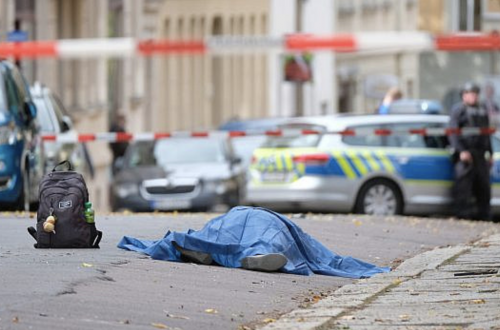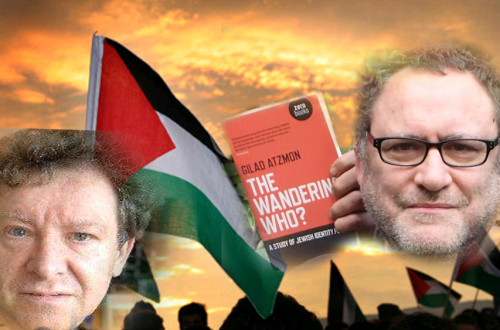This is a cross post by Shiraz Maher from The Spectator
It may be unpopular to say, but there is reason to be charitable to Tony Blair and his latest warnings about Islamist extremism. The former Prime Minister gave a fascinating interview to Charles Moore in yesterday’s Telegraph where, inter alia, he talks about the challenge of militant Islam. ‘The West is asleep on this issue,’ he tells Moore.
Blair has been more vocal and unequivocal on the issue than almost any other politician in recent years. He notes that the success of his Africa Governance Initiative faces ‘this threat above all others’. Failed states in the Horn of Africa have accentuated this, while one of the unintended consequences of the Libyan revolution has been to strengthen Islamist militants in northern Mali – an area the size of France.
On the Arab Spring, Blair is equally clear. He is ambitious about the potential for democracy in the region but notes the Middle East ‘won’t achieve democracy unless it understands that democracy is a way of thinking as well as voting. The key question is how the majority treats the minority’. This question has plagued the Foreign Office; how should it treat newly elected administrations in Egypt and Tunisia which are of an Islamist orientation?
‘We must engage, but also challenge,’ Blair tells Moore. This is a statement invested with huge significance. After all, Labour was guilty of an all too promiscuous and uncritical embrace of Islamists during much of Blair’s premiership. It is fashionable to blame him for being too soft, for ‘creating’ the problem, or for allowing Islamists space in the public sphere.
Yet, what could we reasonably expect? Before 9/11 the government had been largely indifferent to Muslims. Afterwards, there was a rush to understand them. Wading into an alphabet soup of different groups, all coloured by varying sectarian and ideological allegiances, and complicated further by a foreign lexicon, mistakes were inevitable.
But Blair’s approach shouldn’t be dismissed so easily. The much derided ‘Prevent’ initiative which started to pushback against extremists was founded on a sound basis. Through the scheme Blair was essentially trying to reach over the heads of existing Islamist groups who paraded themselves as gatekeepers of the Muslim community. The idea was to empower new and progressive voices at the grassroots which could undermine the extremist narrative. Prevent may have struggled in many areas, but the thinking behind it was clearly innovative. ‘We mustn’t accept radicalism by accepting its narrative and disputing only its [violent] methods,’ Blair tells Moore.
That shift in focus, from challenging not just the methods of extremists but their entire worldview is something Blair has been very vocal about. Writing in the Wall Street Journal just over eighteen months ago, he argued:
We have to nail down the definition of the problem. There is no general failure to integrate. In the UK, for example, we are not talking about Chinese or Indians. We are not talking about blacks and Asians. This is a particular problem. It is about the failure of one part of the Muslim community to resolve and create an identity that is both British and Muslim. And I stress part of it. Most Muslims are as much at ease with their citizenship in the U.K. as I am. I dare say that is true in other European nations too.
However, some don’t integrate. But when we talk about this in general terms, without precision, for fear of ‘stigmatising’ Muslims, we alienate public opinion and isolate the majority of Muslims who are integrating and want to be as much part of our society as any other group. Then, because we won’t identify the problem as it is, a subterranean debate takes the place of an open one, and that debate lumps all Muslims together. So in the interest of “defending” the Muslim community, we actually segregate it by refusing to have an honest debate about what is happening.
This is about as forthright an assessment of the problem as you will hear from any politician. Tackling this problem, he argues, requires a greater inflection of British values into public debate; a greater stress on obedience to the rule of law, safeguarding space for minorities, and respect for civil institutions.
‘We will not defeat extremism (and the fear it then produces in our societies) until we defeat its narrative. This narrative is Islam as a victim of the West, locked in an inevitable cultural conflict with it,’ Blair writes. ‘The first step in fighting back is to recognise the nature of the struggle.’
Much of this work has been taken forward by the Conservative Party. The Prime Minister’s Munich speech last year marked a shift in official rhetoric when Cameron spoke about the failure of multiculturalism, the need to better integrate some minorities, and the pressing challenges of Islamist extremism.
Michael Gove has traditionally provided some of the clearest thinking on this matter. When in opposition he led a ferocious challenge against then education secretary, Ed Balls, over government funding for a school run by Islamist radicals in East London. In the Department for Education he is now creating a ‘due diligence unit’ to better vet academy proposers, and Free School providers.
The government’s Prevent review also marked a radical change in approach. For the first time it named Islamist ideology as a problem, identified key ideologues, and promised to challenge extremism in general – rather than just its violent manifestations. Again, much of the groundwork for this was laid by Paul Goodman when he was shadow minister for Communities and Local Government, and Baroness Pauline Neville-Jones in her former role as Minister of State for Security and Counter Terrorism.
Cameron has styled himself as the ‘heir to Blair’ and, in this regard at least, can claim to have carried forward his predecessor’s legacy.


